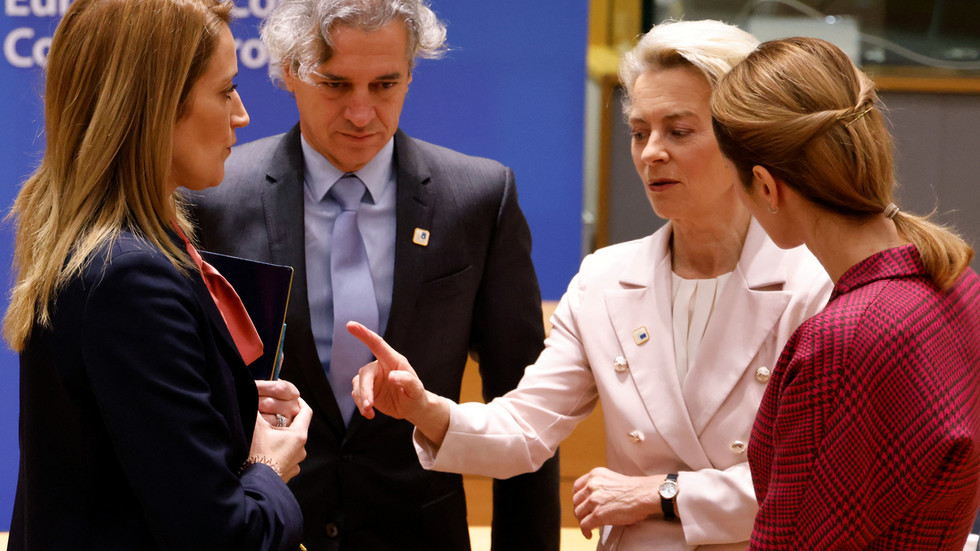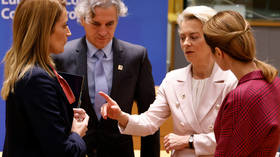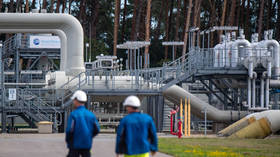
Poland and the Baltic states reportedly objected to a proposed relaxation of restrictions affecting fertilizer exports

(LtoR) European Parliament President Roberta Metsola, Slovenia’s Prime Minister Robert Golob, European Commission President Ursula von der Leyen and Estonia’s Prime Minister Kaja Kallas speak together ahead of a European Council Summit in Brussels, on December 15, 2022. © Ludovic MARIN / AFP
EU member states have failed to thrash out a ninth package of economic sanctions targeting Russia over its military campaign against Ukraine, according to Reuters. The news agency, citing an anonymous diplomat, said several countries objected to a proposed change to the existing measures.
According to the report, discussions were held late on Wednesday in Brussels, ahead of the EU leaders’ summit on Thursday.
The main bone of contention, Reuters claims, were plans to allow the passage of Russian fertilizer exports through EU ports, even if they were produced by sanctioned Russian firms. Some countries reportedly argued that this would help ensure food security in developing nations.
Opponents, however, who according to Reuters included Poland and the three Baltic states, argued that such a relaxation would likely be abused by Russian oligarchs on the EU sanction list.

Meanwhile, some member states reportedly suggested giving the World Food Programme the right to authorise such exports.
Reuters quoted its anonymous source as saying a new draft of the sanctions package is expected to be circulated on Thursday evening.
Last week, the Financial Times reported that nations such as Germany, France, Spain and the Netherlands had drafted a proposal, calling for exemptions on Russian grain and fertilizers. The countries allegedly argued that the current sanctions regime was delaying vital shipments to poorer regions.
The document reportedly said, among other things, that the “current legal situation contributes to criticism that sanctions actually hinder trade in food and fertilizers.”
Back in September, Russian President Vladimir Putin called on the UN to pressure the EU to lift the restrictions. He said at the time that the sanctions first and foremost harmed developing countries.
The Russian head of state also pledged to provide 300,000 tons of fertilizers, unable to leave EU ports, to those nations free of charge.
The EU imposed sanctions on Russian fertilizer exports back in April, banning the purchase, import or transfer of those products to the EU. In August, the European Commission issued a clarification, under which the regulations also applied to the transit of Russian fertilizers to third countries via the EU.




